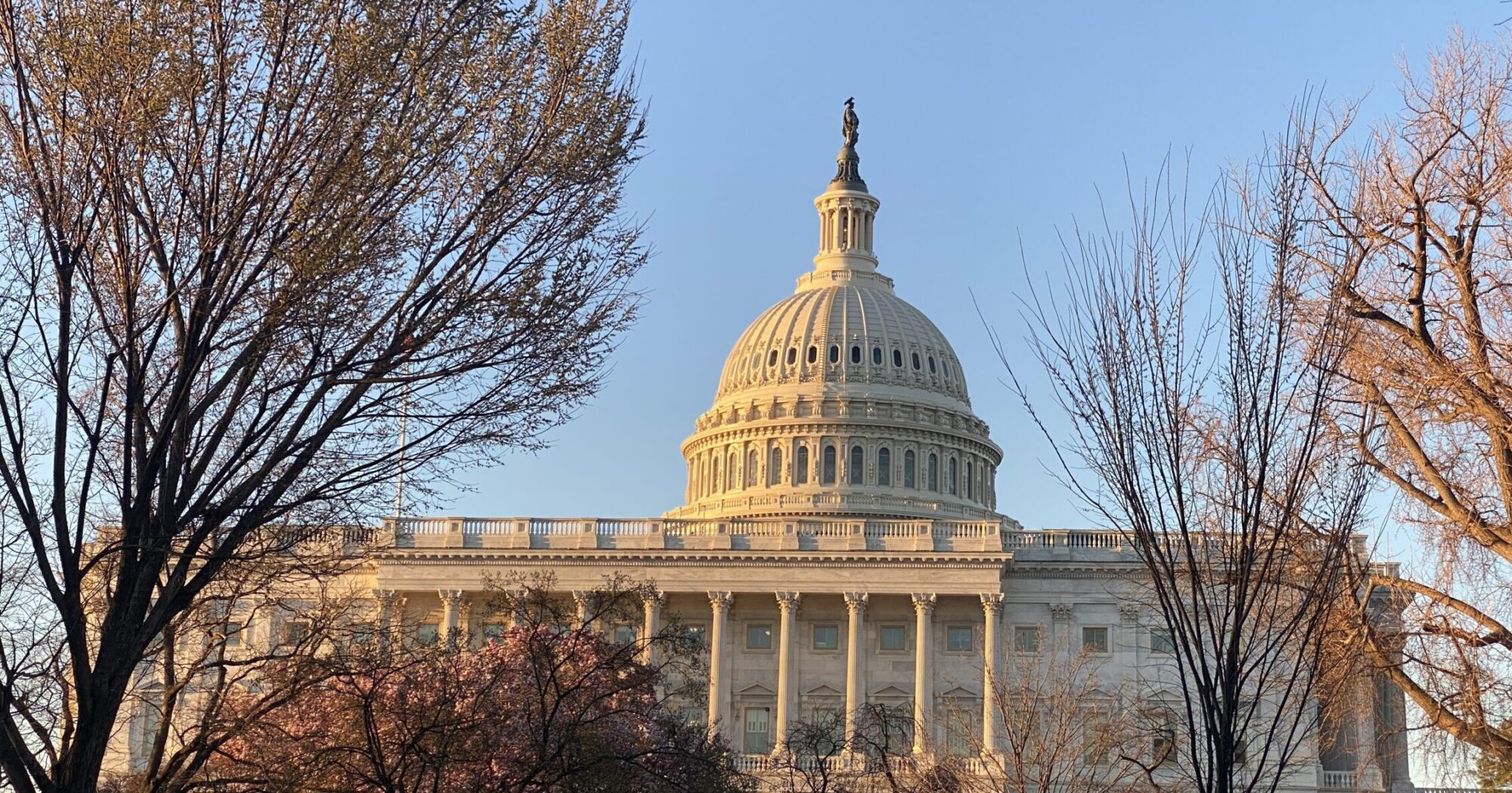A new Transportation Bill has been signed into law. Thanks to the outstanding advocacy by our members and national partners, we managed to head off attempts to eliminate preservation funding and to weaken many protections afforded by the National Historic Preservation Act and 4(f) of the Department of Transportation Act.
The Issues
Additional Resources
Legislative Timeline
October 26, 2012
This week, the FHWA issued guidance that says “historic preservation as an independent activity unrelated to historic transportation facilities” is an ineligible activity under the new law… See our Legislative Update.
July 6, 2012
President Obama signed Transportation Bill into law.
Here is a brief summary:
Transportation Enhancements: Funding for historic preservation in general still exists in a redefined ‘Transportation Alternatives” category. However, funding for the acquisition of easements or sites is gone, as is funding for historic/scenic byways and transportation museums. No longer a 10% guaranteed set aside, “TA” will have to compete with other programs for a slightly smaller pot of money. States also have the flexibility to use half of their TA funding, if they wish, on other priorities. The rest is to be distributed to local planning/governmental entities. To learn more, the Transportation Enhancements Clearinghouse has published a guide. The FHWA has created a table to illustrate the amount of money expected to be apportioned in FY 2013 (by state) for Transportation Alternatives.
Streamlining: Several of the most damaging proposals to exempt projects from historic review or to allow the substitution of weaker protections and processes were not included. However, several ares of concern still exist – including exemption from NEPA review for advance acquisition, small projects, or properties in an existing right-of-way. In many cases the Secretary of Transportation has been directed to promulgate regulations for how to handle these exemptions. Preservation Action and our national partners will be following the development of these regulations and providing comments and input.
Update, June 29, 2012
Transportation Deal Reached….. Read our initial analysis.
Update, June 15, 2012
Secrecy still surrounds the contents of the Senate and House compromise transportation proposals that have been passed back and forth over the last two weeks, however some details have been leaked that are causing concern amongst preservationsts.
Sources are reporting that Transportation Enhancements (TE) and environmental streamlining are two of the key obstacles preventing the Conference Committee from reaching agreement. House members are insisting the Senate further restrict the TE program (the largest single source of federal funding for historic preservation), ultimately allowing states to opt-out or reallocate funds to highway programs. The Senate, which was forced to compromise already on TE in order to pass their bill, is resistant to further change.
House members are also pushing for the series of environmental streamlining measures that would be potentially harmful to historic resources by either exempting them from review, permitting the substitution of weaker reviews, or establishing arbitrary deadlines for approval. The Senate is seeking a more moderate approach and is insisting, at least in the case of arbitrary deadlines, that provisions should be incorporated to permit extensions.
Update, June 1, 2012
Thanks to a quick response from preservation organizations from around the county, more than 100 organizations signed the letter launched by Preservation Action, the National Trust for Historic Preservation (NTHP) and the National Conference of State Historic Preservation Officers (NCSHPO) to members of the Conference Committee tasked with working out a compromise on a new national surface transportation law.
The current transportation law expires on June 30, 2012, leaving just a few weeks for the conference committee to reach an agreement. Already, we are hearing reports of major friction between committee members on both the streamlining provisions and how much to limit spending levels.
Rep. Paul Broun (R-GA), who is not a member of the conference committee, is planning on filing a motion to call for a vote in the House that would force the conferees to limit 2013 spending to $37.5 billion, the amount currently available in the highway trust fund. In contrast, the Senate passed bill (MAP-21) would cost $109 billion over two years. While the vote would not necessarily be binding for the committee, fiscally conservative freshmen conferees could harden their positions – making compromise less likely.
Update, May 11, 2012
Tuesday, May 8th marked the opening meeting of House and Senate negotiations reconciling their respective transportation bill into one. We have reported extensively on both versions (andprevious versions) of the legislation.
Conference committee member Rep. Edward Markey (D-MA) gave an encouraging opening statement to the conference committee reminding them that “Funding, planning and building roads and other transportation projects have impacts on water and air quality, scenic values, and natural, historic and cultural resources.” Markey went on to criticize the “streamlining” provisions callout the “arbitrary time limits that will hobble environmental reviews and exemptions so broad as to make the statute meaningless.”
Within the committee (members listed below, right), major areas of disagreement continue to be identifying a source of funding to pay for the legislation, the House’s inclusion of the Keystone XL pipeline, and the easing of environmental review.
Update, April 27, 2012
Both the House and the Senate have named members of the Conference Committee (listed to the right) that will be charged with reconciling the House and Senate passed transportation proposals. As we reported last week, the House gave up on its very unpopular multi-year transportation bill, H.R. 7, acknowledging that thanks in part to successful grassroots lobbying, they did not have the votes to pass it. Instead, they passed yet another 90-day extension of the existing law but tacked on several provisions including categorical exemptions to historic and environmental reviews.
Update, April 20, 2012
This week the House gave up on its very unpopular multi-year transportation bill, H.R. 7, acknowledging that thanks in part to successful grassroots lobbying, they did not have the votes to pass it. Attempting to avoid a charge of further delaying the passage of a new transportation law, and trying to avoid simply taking up the Senate-passed bill (MAP-21), the House passed an extension (on top of the 90 day extension already passed last month) to the end of the fiscal year.
While the language started out by extending the existing law, forcing action on the Keystone pipeline, and included the RESTORE Act (for gulf state recovery efforts), an amendment by Rep. Ribble (R-WI) brought back many of the categorical exemptions to project review that concerned preservationists in H.R. 7.
Update, March 30, 2012:
Avoiding a funding and program shutdown with the expiration of the current transportation law (SAFETEA-LU) and the authority to deposit tax revenues into the Highway Trust Fund set to take place tomorrow, the House and Senate passed a 90-day extension. This will give the House more time to refine H.R. 7 (their wildly unpopular multi-year transportation bill), take up the Senate-Passed Transportation Bill, or come up with an all together different alternative.
The path forward is still unclear. House fiscal conservatives still believe H.R. 7 is too expensive, and many more legislators are strongly opposed to the proposal to eliminate funding for public transportation. Despite these disagreements, House Speaker John Boehner (R-OH) has stated confidence that they will pass a bill, and modifications are being worked on behind-the-scenes. But many also continue to doubt that a bill can be successfully reconciled with the Senate bill even with the new June 30th deadline.
Update, March 16, 2012:
After working through 30 proposed amendments, this week the Senate overwhelmingly passed S. 1813, (Map-21), their two-year $109 billion transportation bill. The vote was 74-22.
Although widely viewed as in a substantially more favorable light that the unpopular H.R. 7 which has been languishing in the House, there are still some provisions that should concern preservationists.
House staffers are beginning to suggest that they won’t be taking up the subject again until mid-April – well beyond the March 31st expiration of the current extension of our existing transportation law. This would mean another short-term extension would be needed, and there is still no clear answer whether the House will actually take up the Senate bill or continue to work through the substantial opposition to H.R. 7.
Update, March 9, 2012:
Some movement occurred towards a new surface transportation law when House Speaker John Boehner (R-OH) completely dropped H.R. 7 – the wildly unpopular House Transportation Bill we have been reporting on for several weeks now, and announced they may take up the Senate bill. For preservationists, this is much better news – given the Senate bill (S. 1813, Map-21) contained far fewer categorical exemptions to historic preservation reviews, and at least maintains the option for states to use Transportation Enhancements (although voluntarily, not as a mandated set-aside) for historic preservation projects.
As for the Senate bill, after much debate, an agreement was finally reached on the number of amendments that would be debated – limiting the number to 30. For weeks several Senators had been arguing over a series of non-germane amendments and without agreement to limit debate, they were unable to move forward. A surprise amendment made it to the final list that called for $700 million each for FY 2013 and 2014 for the Land and Water Conservation Fund – paid for out of the BP oil spill settlement, and would reauthorize the LWCF program through FY 2022. Preservation Action and its partners will be exploring whether there is an opportunity to once again see that the HPF (the LWCF sister fund) is not left behind.
Update, Feb. 17, 2012:
The House Transportation Reauthorization proposal, which has now been broken apart into three different pieces (transportation, energy production & federal employee pensions) to try to make it more palatable, still has very little support (as evidenced by more than 300 filed amendments) and has been threatened with a Presidential veto, while the Senate bill is facing several potential unrelated amendments covering subjects ranging from health care to eliminating financial support for Egypt. Both the House and the Senate will be in recess next week.
Update, Feb. 10, 2012:
Late this afternoon we heard that Rep. Petri (R-WI) is planning to reintroduce the amendment he offered during the Transportation and Infrastructure Committee Hearing that would have restored TE funding (in the House Bill) for historic preservation and other activities targeted for elimination.
Update, Feb. 9, 2012:
Both the House and the Senate have been working on competing Transportation Reauthorization Bills. Both versions contain provisions that would drastically impact historic preservation – although the House bill is particularly dangerous.
Senate: Consolidates Transportation Enhancement (TE) and other programs together into a single funding stream, increasing competition and eliminating the set-aside that guaranteed TE funding. There are also some concerning provisions that seem to exempt certain activities such as property acquisition from environmental and historic reviews.
House: Eliminates all TE programs related to historic preservation, and eliminates TE as a set-aside funding stream. The bill is also full of categorical exclusions to environmental and historic reviews for a whole host of activities including site acquisition, projects resulting from emergency declarations (think Katrina), and railroad properties.
PA is currently encouraging its members to contact their Senators to ask them to support TE funding for historic preservation, and we are working behind the scenes with members in the House to try to secure changes to the legislation to address some of the categorical exclusions. It is our hope that this dual House/Senate strategy will cover our bases and set the stage for a favorable compromise between the two bills.
Unfortunately this is a fast moving target, with the House and Senate both potentially taking up the bills the week of the 13th of February. Stay tuned for updates as they unfold.

